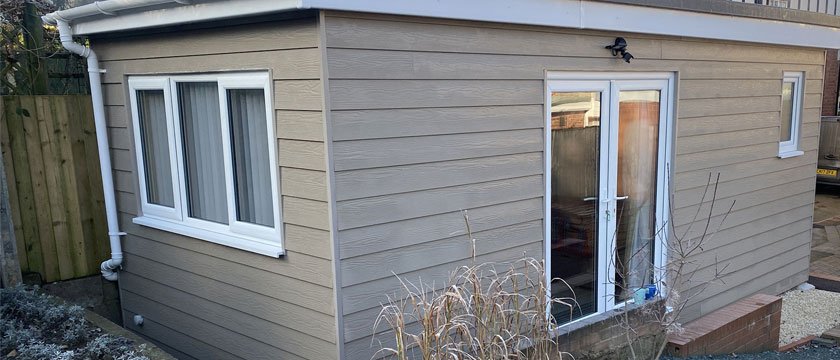
Do I Have To Pay Council Tax on My Granny Annexe?
Mobile Granny Annexes seem to have grown in popularity over recent years as a relatively simple way to utilise an underused garden area. For some, an annexe provides an additional income stream in the form of rented space such as a B&B. For others, an annexe can provide future security as families plan to help take care of ageing relatives, children who return to live at home after university or young adult’s unable to (yet) afford their first step on the property ladder. Whether you are young or old, mobile annexes are an effective and affordable solution compared to the sky-high UK house prices we are currently experiencing.
We frequently meet people who ask us the question “What is an annexe?”. An annexe is defined in planning guidance as accommodation which is ancillary to the main residential dwelling. It is typically a one- or two-bedroom mobile home that can be lived in provided you can successfully obtain either Planning Permission or a Certificate of Lawfulness.
Please note, local authorities throughout the UK have different rules. It is important to check with your local planner or Planning Portal to be 100% safe.
For anybody considering a new annexe, it is important to get your finances straight so you have a good idea what your future outgoings might be. This will all depend on where you live and what you plan to use the annexe for. As the title above states, we will be looking at granny annexes specifically in this article.
As of 2014, the Government scrapped what was called the ‘unfair surcharge’ on family annexes, which saw two separate council tax bills levied on the same home if it had a ‘granny flat’ or similar extension. The authorities realised that they needed to help support families that were looking after elderly relatives.
Eric Pickles, a former Conservative Party politician, said at the time “These common-sense tax cuts will increase the provision of affordable housing to those on lower and middle incomes. Encouraging extended families to stay together will reduce social care costs to the taxpayer and protect independence and dignity for the young and old.”
An annexe is exempt if a dependant relative is living in it as their main or only home, and it separately banded for Council Tax but forms part of another property. A relative is classed as dependant if they are either:
- Over the age of 65
- Disabled
- Mentally impaired.
An annexe is also exempt if:
- It is unoccupied
- Forms part of a single property
- Occupied by students or persons under the age of 18.
If you find that you do not meet the criteria above, you may still be able to obtain a 50% discount on the Council Tax bill. Please get in contact with the local authorities for more information.
If you already own an annexe, it is well worth checking to see whether you are due a council tax discount.
Since the Government scrapped what was called the ‘unfair surcharge’ on annexes, there are still families out there that may be entitled to a discount. For more information, please take a look at what Martin Lewis has to say on the Money Saving Expert website here.
Our team at Eco Friendly Lodge Cabins are experts in advising, planning and constructing timber lodge cabins for both domestic and commercial settings including granny annexes. If you are worried about planning permission, have an idea but not sure how much it will cost, or you have a general questions, please contact a member of our team today.

[…] got a good idea what your future outgoings might be. Please check out one of our latest articles ‘Do I Have To Pay Council Tax On My Granny Annexe?’ for more information on some of the outgoing costs you may need to […]